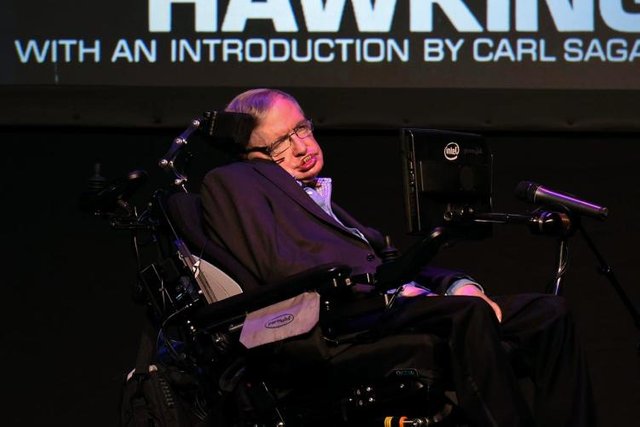Physicist Stephen Hawking dies at the age of 76 in Cambridge
Stephen W. Hawking, British theoretical physicist fighting a neuromotor disease died on Wednesday morning at the age of 76. His family announced the death of Stephen Hawking at his home in Cambridge, however, no official details of his death is released yet. He is a well-known and highly talented physicist often compared to the intellect of Sir Albert Einstein who gave humanity various theories and ideas on the working of the black hole, the universe and how and why it came to be. He also insisted on reconciling the much vast Einstein’s theory of relativity and quantum physics which he later named as ‘Theory of Everything’.
At the age of 21, in 1963, Stephen Hawking was diagnosed with degenerative motor neuron disease which is similar to Lou Gehrig’s disease. Doctors suggested that he would live for only two years that made Stephen fall into depression. That is when the physicist rose to his fame when he opted to complete his doctorate at the University of Cambridge where later, he became the Lucasian professor of Mathematics, a position once shared by Sir Isaac Newton 300 years earlier. Since then, Stephen Hawking has made excellent discoveries, theories and published a handful of books describing his journey, the cosmos, and more.
Due to the disease, he has been wheelchair-borne and can’t walk or even move his hands, he used synthetic voice to fill the void of communicating with others for which, he will be deeply remembered. The physicist rose to fame and eventually appeared in many TV series and movies such as “Star Trek: The Next Generation”, “The Big Bang Theory”, “The Simpsons”, and others. He met with the presidents of different countries, visited Easter Island and Antarctica, ‘flew on a jet with a parabolic flight to experience special “zero-gravity” on Earth, traveled different countries and islands and more.
In an interview, Dr. Hawking once said that he aims to understand the universe, why and how it came into existence. He recently claimed that there was ‘nothing’ that could be classified as a universe before the Big Bang. He wrote his first book in 1988 titled “A Brief History of Time” which actually became an international bestseller with millions of copies sold worldwide. Then, he also wrote books like “A Briefer History of Time” and “The Universe in a Nutshell” and others. He co-authored with her daughter Lucy in a children’s book about the journey of an intergalactic traveler named George. That’s not all. He was researched and a documentary was made on him in 1991 titled “A Brief History of Time” which was directed by Errol Morris.
When compared with the intellects of Albert Einstein, he referred himself as a disabled genius and not ‘genius’ like Einstein. His research, discoveries, and findings over the years have gain momentum. He achieved a breakthrough in understanding black holes, a phenomenon created when a star collapses and its mass increases exponentially concentrated on a single point/dot called as a singularity which is so dense that even light traveling at its speed cannot escape the humongous gravity of these objects. It was Dr. Hawking who discovered that the black holes were only black and that all the laws of physics come to a standstill at the event horizon to such a massive black hole.
When he was at the Institute of Astronomy in Cambridge, he collaborated with colleague Roger Penrose who developed a theorem that the universe never existed. Per the theory, if the theory of relativity is valid then the universe came into existence out of ‘nothing’, it just sprung into existence. Also, he indicated how space and time wrapped in a curve forming a point of singularity where the gravity is extremely strong. His other discoveries are Hawking Radiation, Bekenstein-Hawking formula, Hawking energy, Thorne-Hawking-Preskill bet, boundary term and others. He won the Albert Einstein Award in 1978 along with a bunch of other prestigious accolades such as Heineman Prize in 1976, Fundamental Physics Prize in 2012, Eddington Medal in 1975, Naylor Prize and Lectureship in 1999 and others.
https://tecake.in/physicist-stephen-hawking-dies-age-76-cambridge
Copied under Creative Commons Attribution v4.0 License